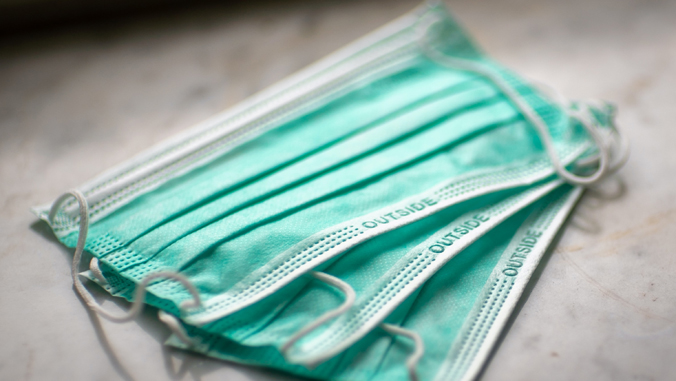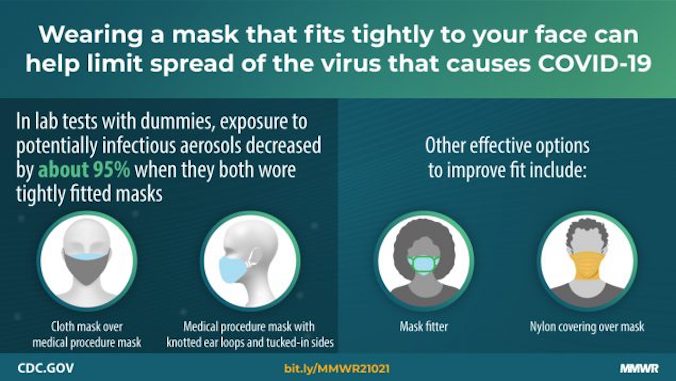
Wearing a cloth mask over a surgical mask, also known as double-masking, provides substantially more protection against COVID-19, according to new data released by the Centers for Disease Control and Prevention (CDC). The research found that double masking with a cloth mask over a surgical mask, as well as knotting the ear loops of surgical masks with tucked-in sides, reduced exposure by more than 95%, compared to wearing no mask at all. University of Hawaiʻi at Mānoa public health studies professor and graduate chair Alan Katz said this is important new information, especially with the new fast-spreading variants of the COVID-19 virus.
“This is how to optimize the use of the mask,” said Katz in response to the CDC findings. “Besides what we all know about covering your nose and your mouth, this is going a step above that, looking at maximizing protection. What they are concerned about is loosening masks or single layered masks, which may not be that helpful.”
Other proven options to improve mask fit according to the CDC include wearing a mask fitter and wearing a nylon covering over a mask. Katz said the key takeaway is that snug face coverings better prevent the spread of airborne COVID-19 droplets and that appropriate masking and social distancing continue to be the two most important COVID-19 prevention steps.
“Even with the vaccine, individuals could potentially get an infection, not get sick, and still potentially infect others. Even as people are getting vaccinated, we want to make sure people who havenʻt been vaccinated are protected,” he added.

More residents want to get vaccinated
On the vaccine front, Katz said a recent statewide survey where 91% of respondents say they plan to get the COVID-19 vaccine is welcome news. The survey report (PDF) commissioned by the Hawaiʻi Department of Health (DOH) showed that attitudes about the vaccine are rapidly shifting since vaccinations first began in mid-December.
“Nationally, the figures are way, way lower than reported in Hawaiʻi,” said Katz, citing a CDC survey released this week that found 49.1% of the people in the U.S. plan to get vaccinated. “Kudos to Hawaiʻi; that is so heartening to hear.”
According to the state survey, 55% plan to get vaccinated as soon as they are eligible, and 36% will wait before receiving their vaccinations. The survey also showed more than a third, or 37%, of Hawaiʻi residents are less concerned about the impact the virus has on their health, and instead are now primarily focused on the pandemic’s economic and financial impact.
The survey was conducted from December 30, 2020 to January 11, 2021, and included 445 adult Hawaiʻi full-time residents statewide.

